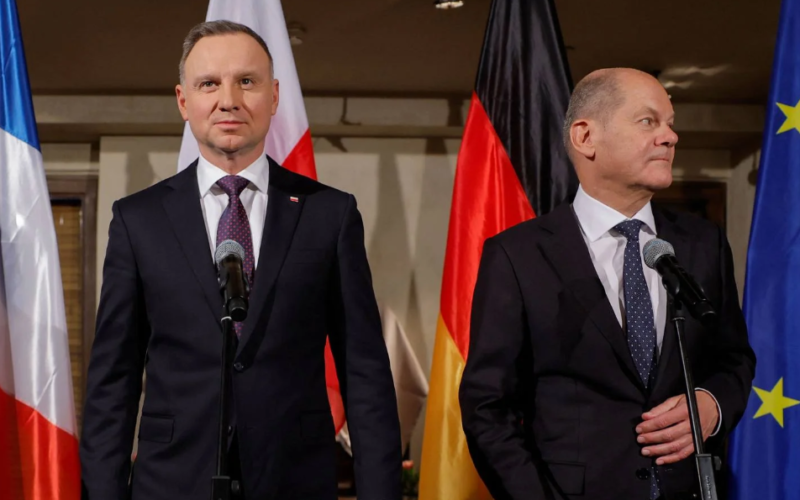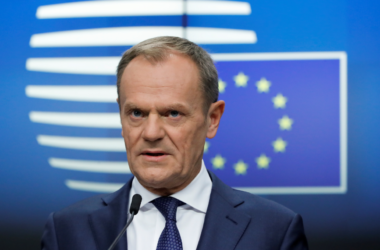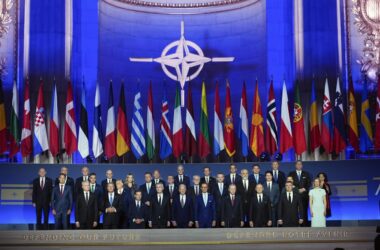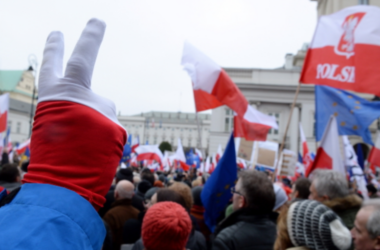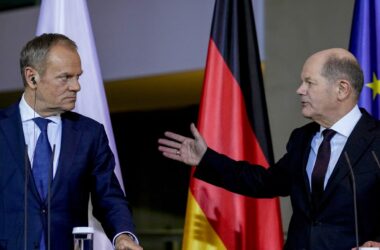As Poland’s ruling Law and Justice (PiS) party fights for an unprecedented third term in office, the country’s political landscape has taken an unexpected turn. The looming Oct. 15 election has seen PiS leaders embroiled in a heated contest, with Germany, their NATO ally and largest trading partner, becoming an unlikely battleground for political discourse.
In the run-up to the election, the leaders of the PiS party have leveled accusations against Germany, alleging that Berlin is attempting to dictate Polish government policies on a range of issues, spanning from migration to gas. These claims have amplified existing tensions in Polish-German relations and have strained the Western alliance.
The discord between Poland and Germany has had repercussions beyond their bilateral relations. It has also strained the broader European unity that supports Ukraine in its ongoing conflict with Russia. One notable casualty of this rift has been a joint Polish-German plan to establish a tank repair plant for the benefit of Kyiv. The plan, which would have bolstered Ukraine’s capabilities, now hangs in the balance.
In a bid to secure victory in the upcoming election, Poland’s populist PiS leadership has even suggested that Germany is conspiring to reinstate their main electoral opponent, former liberal prime minister Donald Tusk, to power. These allegations have resonated with segments of the electorate, particularly elderly conservatives who vividly recall the devastation of World War Two and harbor mistrust toward Germany. The scars of the past continue to shape political attitudes and perceptions in Poland today.
The allegations and accusations between Poland and its NATO ally have not only strained bilateral relations but also impacted wider European cooperation, particularly concerning the Ukraine crisis. As the election approaches, the intricate interplay of historical memories and contemporary politics underscores the complexities of the Polish electoral landscape and its impact on the Western alliance.




